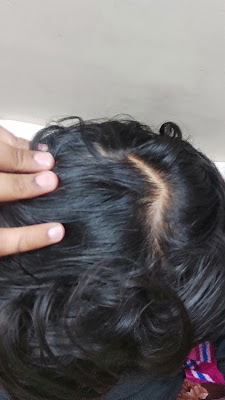Hair fall control
Everyone loses hair. It is normal to lose about 50-100 hairs every day. If you see bald patches or lots of thinning, you may be experiencing hair loss. There are many causes of hair loss. Women may notice hair loss after giving birth. People under a lot of stress can see noticeable hair loss. Some diseases and medical treatments can cause hair loss. The most common cause of hair loss is a medical condition called hereditary hair loss. About 80 million men and women in the United States have this type of hair loss. Other names for this type of hair loss are: Male-pattern baldness. Female-pattern baldness. Androgenetic alopecia. Luckily, most causes of hair loss can be stopped or treated. Anyone troubled by hair loss should see a dermatologist. These doctors specialize in treating our skin, hair, and nails.
How fast your hair grows will depend on your: age, specific hair type, overall health, other health conditions etc. We are born with the total amount of hair follicles we will ever have over our lifetime. There may be about 5 million on our body, but our head has about 100,000 follicles. As we age, some follicles stop producing hair, which is how baldness or hair thinning occurs.
Hair is made up of keratin and dead skin cells. While there’s no direct method to make your hair grow faster overnight, there are steps you can take to keep your hair healthy and long. Talk to your doctor before trying supplements such as biotin, keratin, or other nutritional supplements. They may interact with medications and cause unintended side effects.
- omega-3 and 6
- Zinc
- B-5 and biotin
- Iron
- Vita-C
- Vita-D
How to prevent Hair Loss Problems?
The following tips can help in preventing hair loss problems:
Protect your hair from direct sunlight.
Stop smoking
Use a cooling cap to reduce the risk of losing hair during chemotherapy
Be gentle with your hair
Use a wide-toothed comb
Avoid chemical hair treatments
Avoid curling irons, hot rollers, and hot-oil hair treatments Avoid hairstyles that tighten the hair Use chemical-free shampoo, hair conditioner, and hair oil
Giving birth: After giving birth, some women have noticeable hair loss. Falling estrogen levels cause this type of hair loss. The hair loss is temporary. In a few months, women see their hair re-grow. Menopause: Hair loss is common during menopause. This loss is often temporary. Hair re-grows with time. If a woman is 40 years of age or older, she should not expect her hair to have the fullness that it did when she was younger. Stress: Experiencing a traumatic event (e.g., death of a loved one or divorce) can cause hair loss.
Underlying medical condition: Hair loss can be the first sign of a disease. About 30 diseases, including thyroid disease and anemia, cause hair loss. By treating the disease, hair loss often can be stopped or reversed. Illness: Significant hair loss can occur after an illness. A major surgery, high fever, severe infection, or even the flu can cause hair loss. Your dermatologist may call this type of hair loss telogen (tee-lə-jen) effluvium (ih-flu-vee-uhm). Some cancer treatments: Radiation therapy and chemotherapy can cause hair loss. This hair loss is often temporary, but it can cause great distress. Ringworm of the scalp: This disease is contagious and common in children. Without effective treatment, ringworm can cause balding. Trichotillomania: This medical disorder causes people to repeatedly pull out their own hair. They often feel a constant urge to pull out the hair on the scalp. Some sufferers say they feel compelled to pull out their eyelashes, nose hairs, eyebrows, and other hairs on their bodies.
Lab assistant old years paper rajasthan







No comments:
Post a Comment